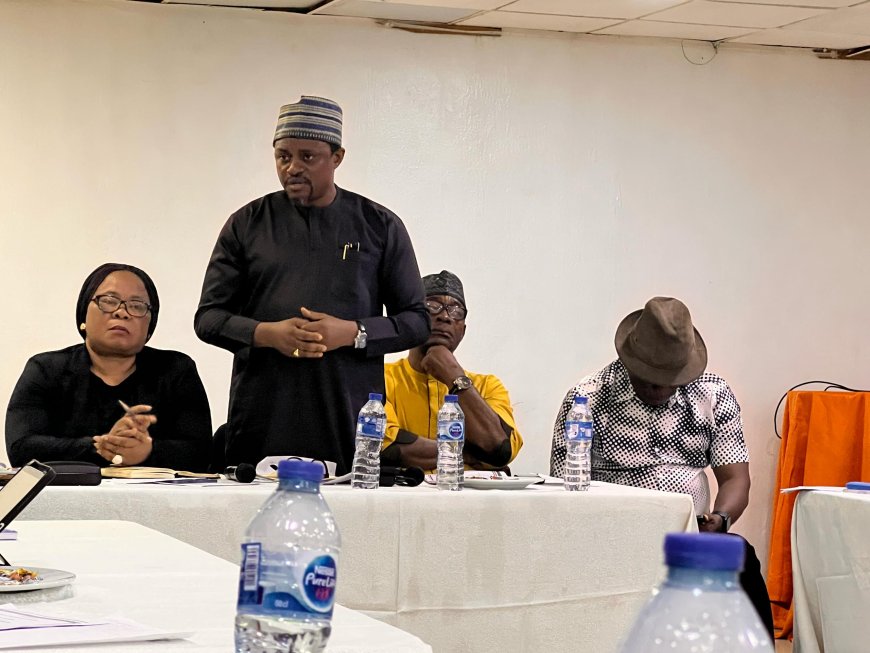C’River Govt, Host Communities, Concessionaire Reach Landmark Resolution on Ayip Eku Estate Revival

A decisive turning point has been reached in the long-standing controversy surrounding the Ayip Eku Oil Palm Estate in Akamkpa Local Government Area, as the Cross River State Government, host communities, and Wingson M-House Palm Oil Investment Limited have forged a binding resolution to end more than a decade of stagnation. The stakeholders have agreed on a clear roadmap to operationalize the 12,400-hectare estate, bringing renewed hope to the region and reasserting the government’s commitment to revitalizing key state assets.
The resolution was sealed at a high-level stakeholders’ meeting convened by the State Ministry of Agriculture and Irrigation Development, recently, at the Metropolitan Hotel in Calabar. All parties present endorsed a three-point agreement that mandates Wingson, the company confirmed by the Bureau of Public Enterprises (BPE) as the legitimate owner with 95% shares, to access and commence operations on the estate within 30 days. Furthermore, Wingson is obligated to deliver long-overdue Corporate Social Responsibility (CSR) projects—including the construction of roads, award of scholarships, and provision of electricity—as enshrined in the 2007 Share Sale Agreement. A comprehensive 5-year phased development blueprint is also to be submitted to the state government within 60 days.
Privatized in 2007 and handed over in 2009 under the Federal Government’s privatization programme initiated by former President Olusegun Obasanjo, the Ayip Eku Oil Palm Estate was one of the most ambitious agricultural assets in Cross River State. However, the estate became inaccessible between 2013 and 2023 following land ownership disputes between Wingson and the host communities—Iku, Abun, Okarara, Ako, and Nundebiji. A recent letter from the BPE dated March 2025, presented at the meeting, reaffirmed Wingson’s ownership status and clarified that compensation for land and economic trees had been fully paid to the affected communities as far back as 2008.
Commissioner for Agriculture and Irrigation Development, Hon. Johnson Ebokpo, speaking after the meeting, declared that the resolution marks a “win-win” for all parties but warned against any further delays or exploitation of state assets. He emphasized that the estate must remain strictly for agricultural purposes and revealed that security agencies—including the Department of State Services (DSS) and the police—will be actively involved in ensuring full compliance.
“This government will not tolerate idle assets or companies that do not fulfill their obligations. The era of silence and neglect is over. The communities must benefit, and the estate must be put to work. We are ready to support legitimate investment, but we will hold every party accountable,” Ebokpo stated firmly.
This new agreement follows years of tension and mounting frustration over the lack of activity on the estate, which many believed had been hijacked by criminal elements in the absence of legitimate development. The situation even attracted the attention of former Senate President Dr. Bukola Saraki—reported to have vested interests in Wingson—who raised the matter with Governor Bassey Otu during a recent visit to Calabar.
Earlier, a proposal by Wingson’s Managing Director, Mr. Moyi Ladoja, seeking a three-month extension to present a development plan was flatly rejected by stakeholders. Instead, a one-month ultimatum was handed down to produce a viable action plan aligned with the original Share Sales and Purchase Agreement. Additionally, Wingson is required to submit a formal letter of commitment to the Governor, dated in line with the stakeholders’ meeting, with copies to all security agencies to ensure transparency and enforceability.
Youth and community leaders were cautiously optimistic. Hon. Adolf Majini, a youth representative, stated, “Our youth demand jobs. This deal must deliver, not just promises but real results on ground.” Other community voices stressed the importance of tangible benefits, particularly in employment opportunities, infrastructure, and access to development.














































